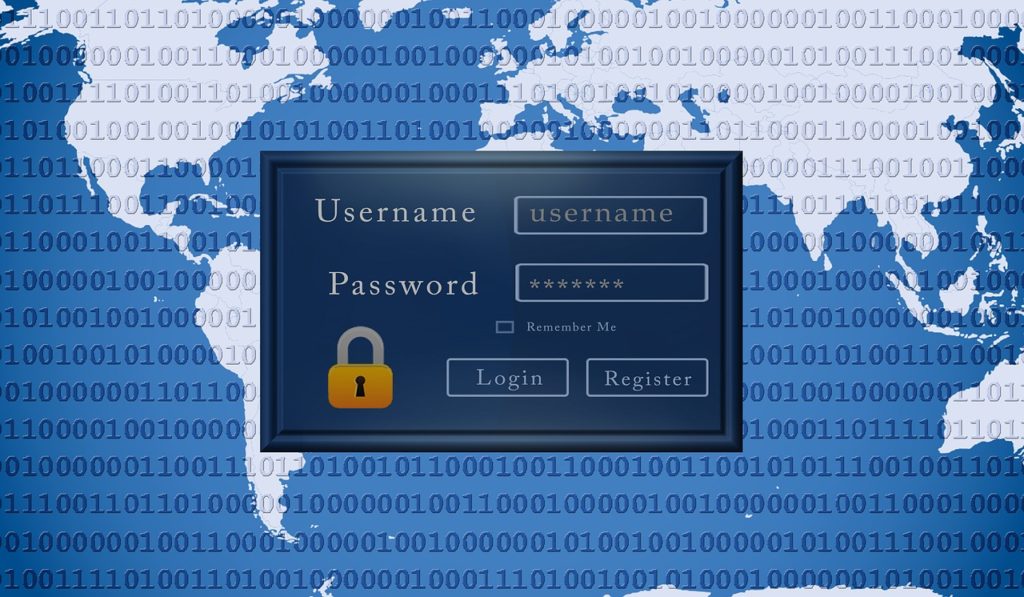While many of us think of using the internet as a casual, daily activity, it can actually be very risky. Cybercrimes like identity theft, hacking, and transaction fraud are unfortunately quite common. If you use the Internet, you are at risk of becoming a victim of these types of crimes.
Internet users have to be proactive about protecting themselves. With the right knowledge and safety measures, you can make internet use a safer activity for you and your family.
-
Use Good Passwords – and Many of Them
You need a different password for every site you use with login information. For most of us, this adds up to a lot of passwords.
To keep all of this information safely organized, download a password manager to your computer or browser. These managers will automatically input your login information and keep it safe and secure; that way, all you have to remember is your password for the manager. Most password managers have applications that can be downloaded onto your phone so you have access to your passwords no matter what device you’re using.

A good password has at least 12 characters, but longer is always better. You also want your password to be a confusing mixture of characters that includes upper case letters, lower case letters, numbers and symbols. It’s also best to avoid using “real” words (use nicknames or acronyms instead) or grammatically correct capitalization.
Even if you create very strong passwords and use different ones for every site, you’ll still need to change them regularly.
-
Always be Wary of Links in Emails
Email links are the gateway that many viruses and hackers use to get access to your information. Savvy criminals have the ability to create very realistic-looking emails that might appear as if they came from a financial government institution, your bank, or even a friend.
If you requested a link via email, it’s more likely to be legitimate. Unsolicited links are more suspicious. Links with urgency, such as ”You need to log in here immediately!” are also suspect.
Ultimately, if anything about a link in an email (or anywhere else online, for that matter) raises a red flag for you, don’t click on it. The same goes for attachments in emails. Your instincts are often correct. Many internet security experts say that users themselves are one of the best lines of defense against cybercrime.
-
Set a Passcode on Your Phone
Adjust the settings on your smartphone so that the screen locks after a short period without use. Also set the phone to request an authentication of some kind in order to unlock after it’s been idle.
Most phones provide the option of a four-digit passcode as the password setting. If at all possible, try to get a higher level of protection like fingerprint access or a password with letters and symbols.
With these protection measures, your data is more likely to be secure if your phone is ever stolen – or even just misplaced. If you access your work email or company software from your phone, this type of protection is important for your employer, as well.
-
Don’t Wait to Update Software
For most people, software updates are annoying. They often interrupt work, take a long time, and require users to restart the device. Many people are guilty of putting these software updates off for as long as possible.

This is a risky move, as these updates are intended to keep you and your information safe. In some studies, updating software helped to protect against over 90 percent of cyber threats. Updates are designed to patch over weaknesses in software that hackers and cyber criminals can exploit. As a result, more quickly you update to the newest software, the more quickly you are fully protected.
-
Be Vigilant with Social Media Accounts
Social media is a huge part of online life. Most anyone who uses the internet uses one or several of the popular social media platforms: Facebook, Instagram, Pinterest, LinkedIn, Google+, or YouTube.
Because these sites are intended for social interaction, it is very easy to become too comfortable in the way you interact with others via social media platforms. This comfort can cause us to share too much personal information. Not only could this come back and hurt one’s reputation later on, but it can also endanger your identity and online security.
All social media platforms have privacy settings, but it is up to users to adapt these settings to protect themselves. Identify the audience of all your posts and try to keep your profiles as private as possible. Spend some time exploring the privacy section on all of the social media platforms that you use. Learn exactly how your profile looks to other people and ensure that you know what is being shared, when, and to whom.
The internet is a powerful tool and also a dangerous one. With these tips, users can stay safe and enjoy all the benefits of the internet without risking privacy or safety.

